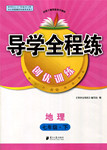题目内容
I've started to learn ancient Greek. It doesn't urge you to communicate,only to learn,and I find the early hours of the morning the perfect time for that. I love routine. I wait until 7 am to have tea. At 7:30 I make breakfast. After that,I read the Roman emperor Marcus Aurelius.
I read Marcia every day; it was his philosophy that got me through my son Matthew's 滅 death,four years ago in a motorcycle accident. Aurelius said: ‘What we jESHBlBl cannot bear removes us from life.’
Matthew's death was such a waste. At first I would rather have been dead too,but then I thought: ‘No. I mustn't do less. I must do more!'
I am what you might call a late developer. I was 40 before I wrote my first novel,62 when I went to university. My husband,Neil,was a talented jazz musician,but at 25 he developed a serious illness,losing his speech and the use of the right side of his body. It was hell for all of us. We were so broke,and we lived on national assistance for ages.
I wrote my first novel while Neil had his weekly music therapy(疗法) . That 50-minute therapy was all I had. I used to sit in a cafe and write and write while couples had life-and-death quarrels around me. Gratefully,my family supported me in my writing career.
My daughter Emma gave me War and I loved it so much. Then it hit me: I hadn't read it at all,I'd only read a translation,and I so longed to read the actual words. A kind elderly Russian lady taught me the basics and I joined the Russian language degree course at the University of London. I gained the degree in my sixties and a PhD at 74. People talk about ‘the time of their lives’. Well,that was mine. Don’t!et anyone tell you your memory goes with age. It's there if you want it enough. Gradually I forced it into action — it was such an exciting experience. Oh,the joy of learning.
24. What does the underlined word “that” in Paragraph 1 refer to?
A. Learning. B. Communication.
C. Having tea. D. Following routine.
25. Shortly after Neil fell ill,the author.
A. led a difficult life
B. went to university
C. quarreled with him
D. tried to write novels
26. The author decided to learn Russian because.
A. her daughter advised her to do so
B. it was one of her favorite languages
C. she wanted to read a novel in Russian
D. she wanted to make a Russian friend
27. What can we learn from the text?
A. It's never too late.
B. No sweat,no sweet.
C. Every road leads to Rome.
D. Never judge a book by its cover.
(个人情况)
本文是记叙文。作者以自己40岁 开始写第一本小说、62岁开始读大学的 经历告诉读者:无论做什么事情,再大的 年龄都不晚。
24. A.篇章结构题。根据第一段内容可 知,作者现在开始学古希腊语并不是 因为急于用希腊语沟通,而是为了学习而学习,而且作者发现早晨的时间 是“学习”的绝佳时刻。
25. A.细节理解题。根据第三段中的 We were so broke,and we lived on national assistance for ages 可知,丈夫 生病后,作者一家经济拮据,长期依 靠国家援助过活,生活困顿。
26. C.细节理解题。根据最后一段中的 My daughter Emma gave me War and Peace ... I so longed to read the actual words ... and I joined the Russian language degree course at the University of London 可知,作者因为 想读《战争与和平》的原版,所以学习 俄语。
27. A.推理判断题。通读全文可知,作 者40岁幵始写第一本小说、62岁开 始读大学、74岁获得博士学位。从她 的经历,我们不难看出无论做什么事 情,再大的年龄都不晚。

 导学全程练创优训练系列答案
导学全程练创优训练系列答案假定你是李华。某英文报社正在就选择大学 专业时兴趣和就业前景(prospect) 哪个更重要的问 题对高三学生进行调查。以下是你所在班级同学 的观点。请你给该报编辑写一封信,反映同学们的 观点并表达你的看法。
支持兴趣的理由 | 支持就业前景的 理由 | 你的看法 |
1.大学会过得快 乐 2. 热爱未来的工 作 | 1.就业压力很大 2. 选择一份好工 作很重要 | ? |
注意:1. 词数100左右;
2. 可以适当增加细节,以使行文连贯;
3. 开头和结尾已为你写好,不计入总词 数。
Dear Editor,
Recently a survey has been carried out on which is more important in choosing a major in college: interest or job prospect.
I hope you find my article useful.
Yours faithfully,
Li Hua